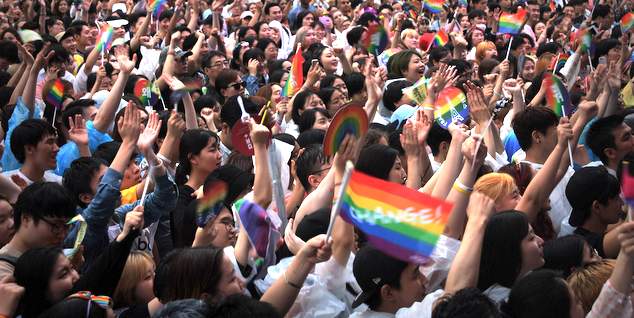
South Korea’s Human Rights watchdog has recommended that the information about the number of LGBTQ+ people is included in government reports and surveys.
The Korea Times has reported that the National Human Rights Commission of Korea has called for the government to make a greater effort to determine the number of LGBTQ+ people so as to help the government create better policies that stop discrimination.
The recommendation follows a number of recent cases where people from sexual minorities, and transgender people, suffered discrimination in various sectors, such as the military and college admissions.
The Commission said there was evidence that LGBTQ+ people had specific health care needs that were not being met, and that transgender people faced socio-economic vulnerability.
International watchdog Human Rights Watch has also called on the government of South Korea to take more action to protect LGBTIQWA+ minorities.
In an open letter, the group raised concern that despite years of concern being raised by the United Nations, the country has done little to address the lack of discrimination protections for minorities, including LGBTIQA+ people.
“Over the past 15 years, United Nations mechanisms have repeatedly expressed concern about discrimination in South Korea. The UN Human Rights Committee, Committee on Economic, Social and Cultural Rights, Committee on the Elimination of Racial Discrimination, Committee on the Elimination of Discrimination against Women, and Committee on the Rights of the Child have all specifically urged the government to adopt comprehensive antidiscrimination legislation.” Human Rights Watch said.
“While patchwork protections exist for some marginalized groups, a comprehensive bill would make them more cohesive and effective, and would cover other groups as well. Recent proposals would prohibit discrimination based on “gender, disability, medical history, age, origin, ethnicity, race, skin color, physical condition, marital status, sexual orientation, and gender identity.” Explicit protections are urgently needed, as existing frameworks are failing to prevent discrimination and provide redress.”
A report released in September 2021 showed that LGBTIQA+ students in South Korea faced discrimination and bullying at a high level.
The 76-page report, titled “‘I Thought of Myself as Defective’: Neglecting the Rights of LGBT Youth in South Korean Schools,” found that bullying and harassment, a lack of confidential mental health support, exclusion from school curricula, and gender identity discrimination are particularly pressing concerns for LGBT students.
Homosexuality is not illegal in South Korea but the countries LGBTI population face stigma and social isolation in the conservative country.
Korea allows people to transition gender if they are over 20 years of age, but it must be court approved, and will be denied if they are married or have a child who is still a minor.
The country does not allow same-sex marriages, and does not recognise same-sex families or couples in law. President Moon Je-in has expressed his opposition to same-sex marriage.
A 2016 survey found that 16.1% of LGBT people had been recommended to undergo conversion therapy when they first came out.
OIP Staff
You can support our work by subscribing to our Patreon
or contributing to our GoFundMe campaign.





